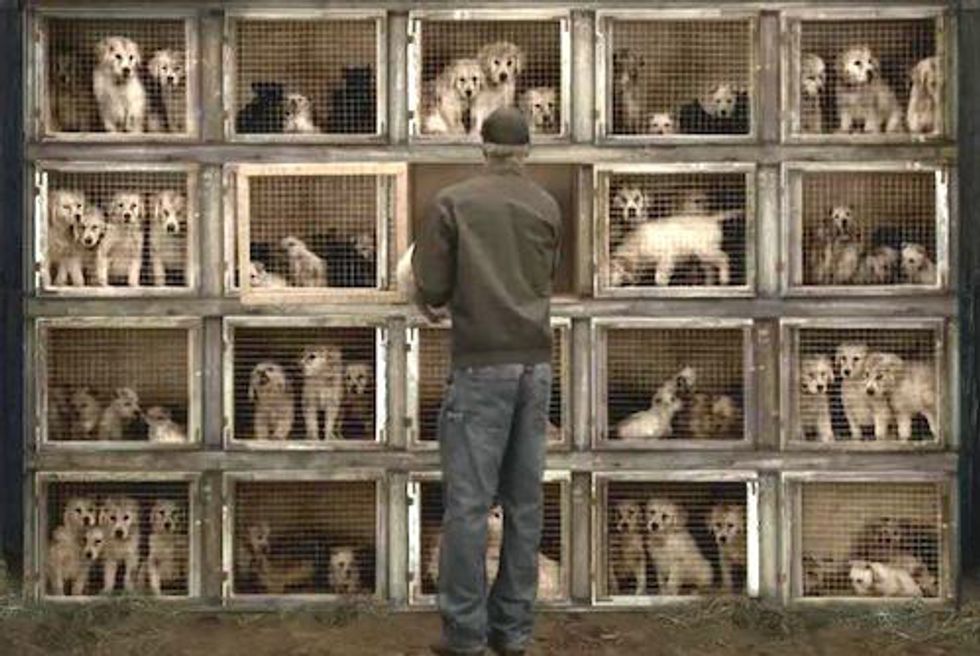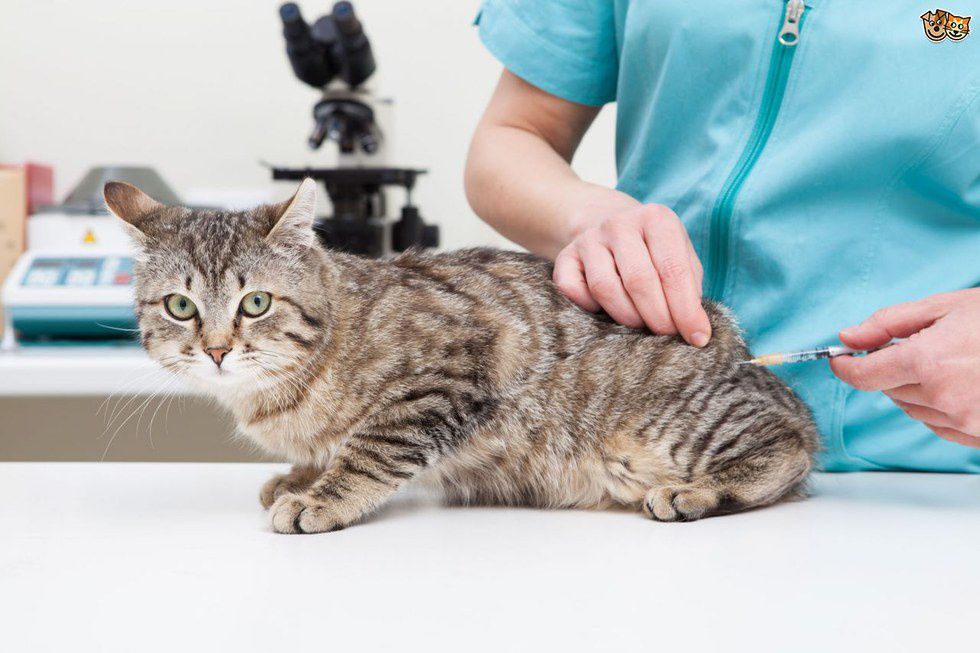You see those sad commercials all the time asking for you to donate to animal shelters. You know the ones - the Sarah McLachlan type of commercials, where the sad song plays in the background, abused and sick puppies and kitties look sadly up at the camera, the celebrity speaker imploring viewers like you to donate money. And if you are anything like me, those commercials get to you no matter how many times you have seen them. I can’t help it, I’m an animal lover.
And as an animal lover, I know that while these animals in shelters deserve to be adopted and given a loving home, most will not because there are too many and people are buying animals from other places, like breeders. This kind of behavior is harming a lot more animals than it is helping.
According to ASPCA, there are 13,600 animal shelters across the US, and in these shelters 7.6 million animals are admitted every year. The sad truth though is that out of these 7.6 million animals, only 2.7 million are adopted each year. What happens to the animals that are not adopted? Some that were found as strays are returned to their owners, and the rest are either euthanized or stay in the shelters until they get adopted another year or die. These numbers are incredibly heartbreaking when shown next to the number of dogs and cats that are owned throughout the US. There are approximately 70-80 million dogs and 74-96 million cats in homes across the US. Compared to those numbers, it would seem like the animals in shelters should be able to get adopted easily, but this is not the case unfortunately. Part of the issue is because there are a lot of animals from breeders being bought instead of animals in shelters being adopted. While the majority of animals are not from breeders, a good amount are, and that affects the number of animals in shelters that are unable to get a home.
For me, the reasons to adopt from shelters instead of shop from breeders are clear. While I am not trying to judge anyone who has bought from breeders or has breed animals themselves, I do want to explain why I believe it is important to adopt shelter animals.
1. Adopting a shelter animal doesn't just save one life, it saves two.
Obviously adopting a shelter animal results in you saving that animal’s life by giving it a home. However, this also saves another animal’s life because adopting opens up a space in the shelter for another animal to take its place. Animal shelters are often filled to capacity because there are so many homeless and rescued animals in need of a shelter. This is partly why there is a large number of shelters that euthanize animals. Unfortunately these facilities are not able to help every animal that comes to them, and in order to help other animals, euthanizing is sometimes the only option they feel they have. Adopting a pet at a shelter helps save that animal from being euthanized and will give another animal a chance at being adopted as well. If adopting numbers go up, this could help bring the number of shelters that euthanize animals down.
2. Buying from a breeder could support reckless and unsafe breeding practices.
There are two main ways to buy from a breeder, the internet and pet stores. There are both cat and dog breeders, but I will focus on the dog breeders right now, especially on puppy mills. According to The Puppy Mill Project, there are around 10,000 puppy mills, both licensed and unlicensed, in the US, and over 2 million puppies are bred in these mills each year. Not every breeder is from a puppy mill, however a large amount of owned puppies are from these puppy mills. Puppy mills are particularly dangerous because these companies care about profit. This has led to mills cutting corners when it comes to veterinary care, sanitation procedures, and living conditions. It also leads to reckless breeding because they want to make as many puppies as they can. Many puppies do not survive to be adopted, due to health problems caused by dangerous breeding and unsanitary living conditions as well as inhumane shipping conditions (such as being cramped in small cages where disease is more easily spread or going without food and water for extensive periods of time). Again, not all breeders are this bad, however a lot of them are not properly regulated and inspected and are allowed to get away with this kind of inhumane treatment.
3. Your new pet will already have its vaccinations, be spayed/neutered, and be micro-chipped.
It is standard procedure for most shelters to have a vaccination procedure, spay or neuter animals, and micro-chip animals. Because of the close proximity and population of the animals in shelters, vaccination procedures are critical to running a shelter smoothly since unvaccinated animals can lead to the spread of diseases throughout the shelter and cause chaos. Shelters also understand the importance of spaying or neutering an animal in order to help combat the overpopulation of animals in the US. If you were to buy from a breeder, it would cost you $45-$175 dollars according to Pets Cost Helper to spay or neuter your animal. Most shelters microchip animals as well, which usually costs around $25-$50 according to Dog Time. While your pet will need to be taken to the vet and get vaccinations throughout its life, you save money by having the first round of vaccination for your animal for free as well as having the one-time procedures of micro-chipping and spaying/neutering taken care of.
4. Your new pet's personality will not be a surprise to you.
Shelters profile each animal in their shelter and will tell you what kind of personality each has, as well as whether they are good with children, certain genders, or other pets. Not every animal will be the right fit for your family, so it is important to pick a pet whose personality will fit into your lifestyle. You are able to find this information two ways at a shelter. One, you can read about the animal’s personality on an online pet adopting site or talk to a shelter worker about the animal-in-question. Two, you can interact with the animal before adopting it to see if it will fit into your family. If you already have a pet(s), you can also have the animal-in-question interact with your current animal(s). This kind of interaction helps animals find forever homes because it gives owners a chance to understand the animal’s personality before adopting, whereas with a breeder that is harder, if not impossible, to do.
5. If you are a first time pet owner or do not want a young animal, you can adopt older and already trained animals.
If you are a first time pet owner and want a little baby animal, I would suggest you have an older animal first and make sure you can handle it before diving into the baby animal years. I haven’t had experience with kittens, however I have had some experience with puppies when my family fostered a few while I was in high school. I have learned that I am not a puppy person at all, but people like my mom very much are. She, however, has had experience with many dogs throughout her lifetime as well as experience with puppies, so she knows how to handle them. First time pet owners, if you really really want a young animal, then do a lot of research into how to take care of them and understand that they require a lot of work, patience, and time. I personally want older animals, past the age of two or three, because most of the time they will be house trained/litter box trained and (if they are a dog) have some basic commands learned (sit, lay down, stay, etc.), as well as understand how to interact with people, other animals, and in a home. Breeders can only offer you baby animals, and usually they have no training and may have never been socialized with people before, but a shelter can offer you an animal that will perfectly fit what you are wanting from a new pet.
If you are looking to add a furry, feathery, or scaly friend to your family, I encourage you to look at animal shelters first and leave breeders out of the decision. You may find a very responsible breeder, but there is probably a perfect animal at a shelter that needs a home more. Visit your local animal shelters to search for animals, or try Pet Finder online if you can't go into a shelter. If you live in the Charleston/Mattoon area, then check out the Coles County Animal Shelter!
Sources:
http://www.aspca.org/animal-homelessness/shelter-i...
http://www.thepuppymillproject.org/about-puppy-mil...



























